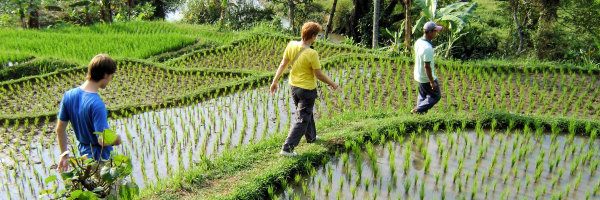Why does Indonesian ask Nama siapa? (qui est ton nom ?)

Dans le cadre du séminaire Structures du lexique : Typologie et dynamiques du LACITO (Langues et civilisations à tradition orale)
Exposé de David Gil (Max Planck Institute for the Science of Human History, Jena, Germany)
Why does Indonesian ask Nama siapa? (name who), rather than What is your name? as in English? English speakers are often puzzled by the Indonesian construction, believing that since names are inanimate, WHAT should be used. Conversely, Indonesian speakers are often surprised to learn that English uses WHAT, arguing that since names refer to people, it should be WHO. This paper poses the question whether the different choice of WH words in Indonesian and English reflects some more fundamental property distinguishing between the two languages, or whether it is a superficial feature without deeper typological ramifications. The answer that is provided is: a combination of both.
The first part of this paper presents the results of an ongoing world-wide cross-linguistic survey examining the choice of WH word in "What is your name?" questions, covering close to 800 languages. The results show that the Indonesian WHO construction represents a cross-linguistically widespread option, spanning a wide rage of seemingly typologically diverse languages, including, among others, Zulu, Amharic, Tsez, Mongolian, Dani, Tahitian and Squamish. Moreover the presence of areal patterning evident in the map shows that the choice of WH word is a feature that is readily borrowed across languages of different genealogical and typological groups. Thus, in large part, Indonesian uses WHO because it is a typical Insular Southeast Asian language, while English uses "What is your name?" because it is a run-of-the-mill Western European language.
However, the second part of this paper shows that in spite of such areal patterning, the choice of WH word does indeed also reflect deeper aspects of morphosyntactic organization. The choice between WHO and WHAT is shown to correlate with the results of an in-progress cross-linguistic experiment on over 60 languages world-wide measuring the extent to which the assignment of thematic roles are grammaticalized. Specifically WHAT languages tend to exhibit more grammaticalization of thematic role assignment than WHO languages. Thus while in English, what and your name are related via thematic role assignment, in Indonesian, nama and siapa are connected through a looser relationship of association.
The choice of WH word in "What are your name?" questions is thus partly arbitrary, reflecting the outcome of diachronic processes of language contact and borrowing, and partly principled, reflecting the degree of grammaticalization of thematic role assignment in the grammar. This case study underscores the way in a single linguistic phenomenon may simultaneously reflect an ontologically heterogeneous potpourri of factors, some diachronic, others synchronic — there can be no one single story explaining everything.
Source image : sawadee.nl
Évènements suggérés


